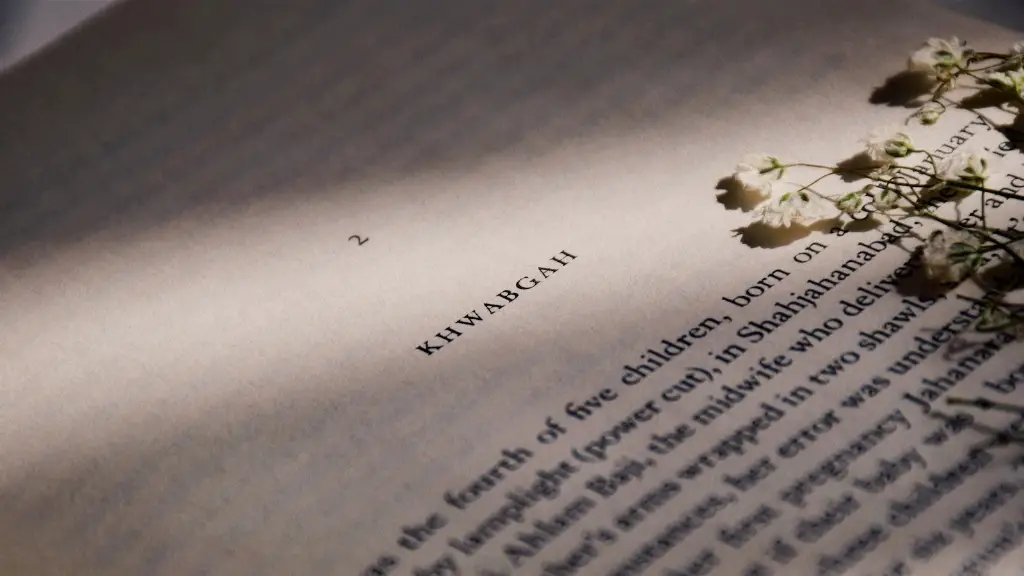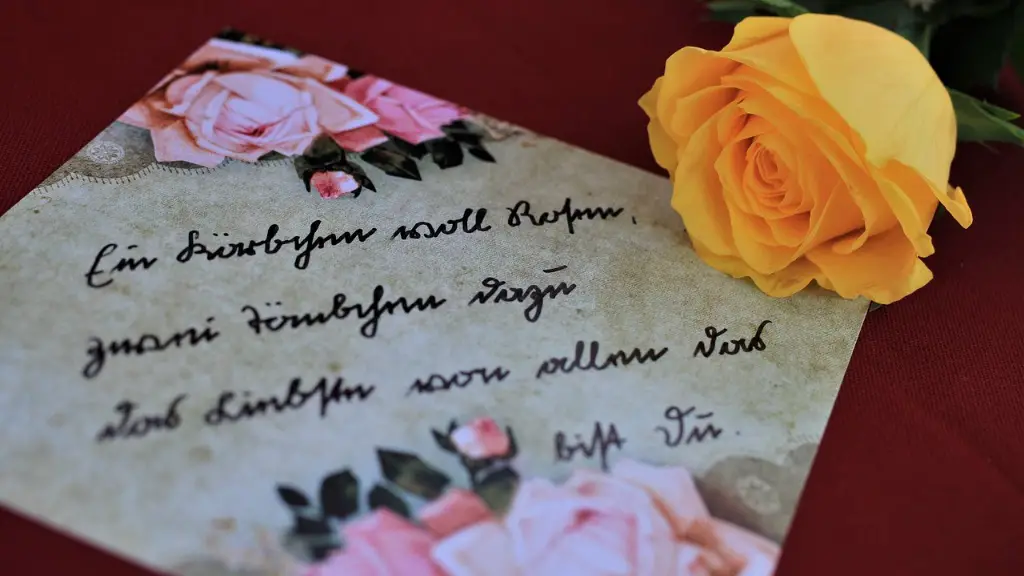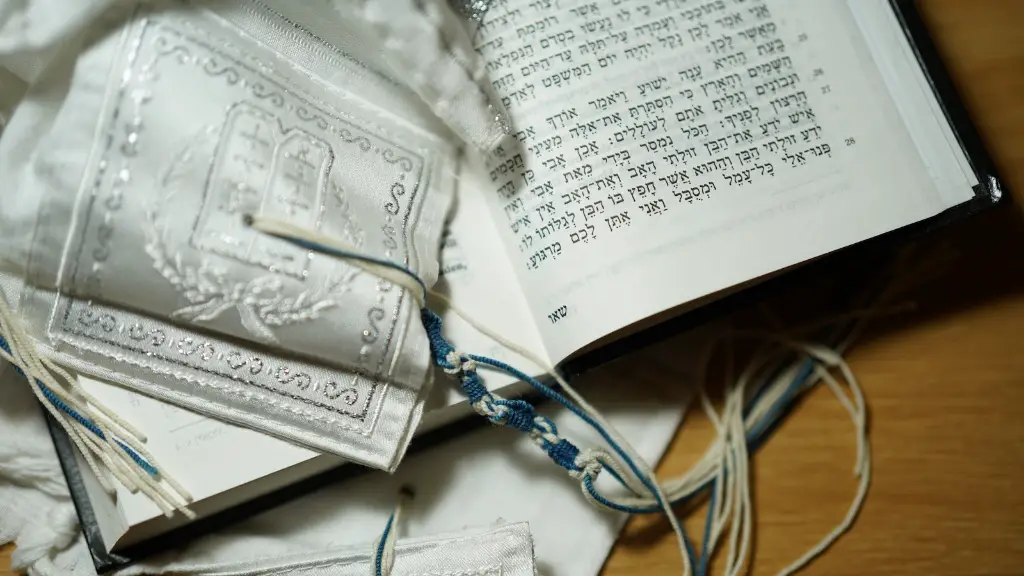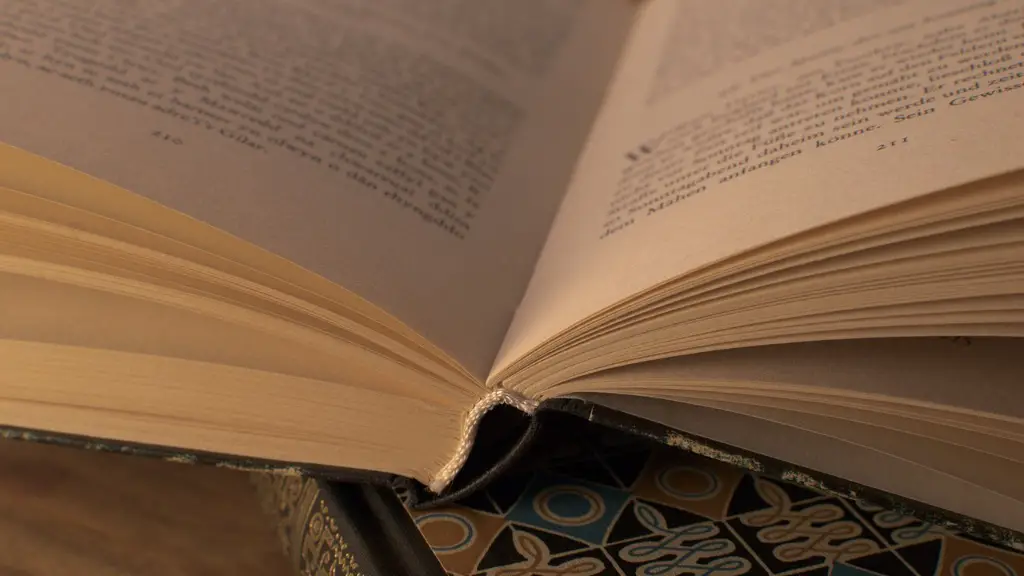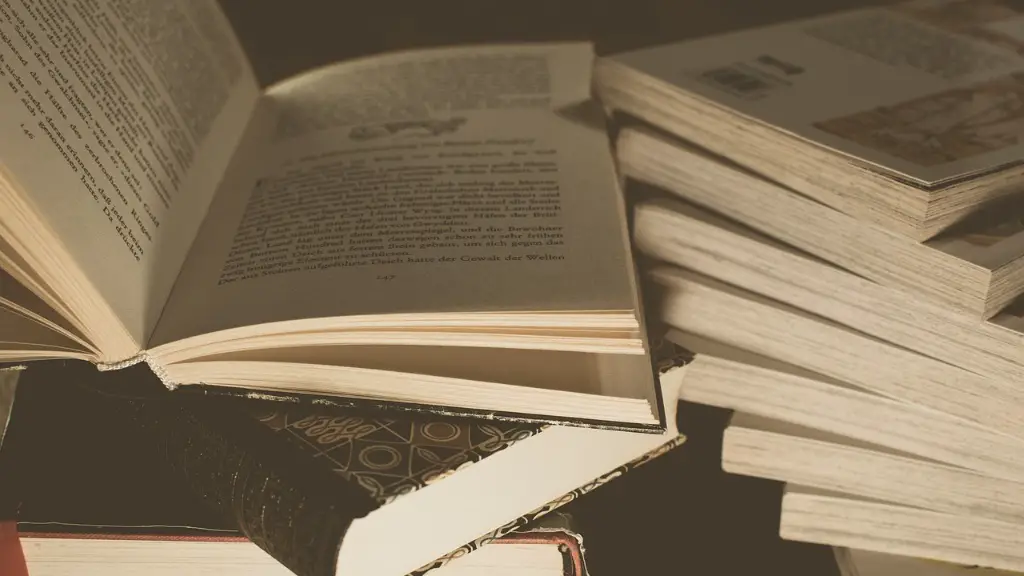Poetry is often seen as an artistic creation beyond the conventions of conventional grammar and punctuation rules. This has been reinforced by high-profile poetry figures such as E.E. Cummings who have played with the use of punctuation to great effect. However, there has been mixed opinion as to whether punctuation should be used in poetry at all.
Throughout history, there has been a tension between free verse poetry which does not use punctuation and traditional forms of poetry which adhere to formal grammar rules. In the 17th century, poet John Dryden famously argued that poets should adhere to punctuation rules, citing the importance of a poet’s ability to indicate pauses and pauses to the reader. Other poets such as Alexander Pope, however, argued for the occasional use of punctuation in poetry to add emphasis and clarity.
In the present day, punctuation in poetry is still a subject of debate. Some scholars argue that punctuation in poetry should be seen as a tool rather than a restriction, with the poet able to employ punctuation to shape the rhythm and tone of the poem. Others, however, are of the opinion that punctuation limits the creative expression of the poet, arguing that poems should be read without the aid of punctuation, allowing the reader to create their own pauses and interpretations.
One argument for the use of punctuation in poetry is that it provides the reader with a sense of direction, allowing them to follow and understand the poem as it goes along. As poet Sonia Sanchez has noted, “When you punctuate it, it gives you a feeling that there is a road that you’re following and it helps to understand and makes sense of a poem in a very accessible way.”
On the other hand, some poets have argued that punctuation should not be used in poetry as it creates a false sense of order and structure, taking away from the naturally chaotic nature of poetic expression. As poet Marilyn Nelson has noted, “The implication of the poet’s choice of words must flow unhindered by punctuation.” By avoiding the use of punctuation, Nelson argues, the poet is free to shape the poem as they see fit.
Overall, it is clear that the use of punctuation in poetry is a highly subjective and personal choice. Though there is a tension between those who argue for and against the use of punctuation, ultimately the choice should be left up to the individual poet. As poet W.H. Auden once said, “Punctuation serves the poet in exactly the same way as it serves the prosaist: to clarify, if it is employed with intelligence and discretion.”
Effect of Punctuation on the Reader
Despite being a seemingly technical decision, the presence or absence of punctuation in a poem can have a major impact on the way that the poem is interpreted by the reader. Without the assistance of punctuation, the poet is free to control the way in which their poem is read and interpreted, allowing them to convey the true emotion and meaning behind their words.
Poetic devices such as repetition, imagery and structure can all be used to great effect to create a vivid, engaging poem. In the absence of punctuation, the reader is then able to gain a greater understanding of these elements, providing them with an opportunity for a more profound experience of the poem. Without the need for punctuation, the reader then has the freedom to make their own interpretations of the poem, thus making for a highly personalised experience.
That being said, the use of punctuation can also be extremely beneficial for the reader, allowing them to gain a greater insight into the poem and aiding in the flow of the narrative. In particular, the use of commas can be extremely helpful in providing a sense of direction and allowing the reader to keep in time with the poem. In this way, punctuation can become an important tool for both the poet and the reader.
Impact of Punctuation on the Poet
The presence or absence of punctuation can also have a major impact on the way that the poet themselves create their poems. Punctuation can be used to indicate pauses and breaks in a poem, allowing the poet to capture the rhythm and shape of their words. Without the need for punctuation, the poet can take full creative control of their poem and use line breaks and poetic devices to their full potential.
In the absence of punctuation, the poet can also experiment with various styles, exploring their own word choices and the effect that they have on the reader. The ability to freely experiment with their own words allows the poet to gain a greater understanding of their own style and creativity, as well as providing them with a unique platform to express themselves.
On the other hand, the use of punctuation in poetry can also be a useful tool, allowing the poet to create a better sense of structure and order in the poem. By employing punctuation, the poet can create a poem which flows more smoothly and provides the reader with a clear path of understanding. Though often treated as a restrictive form of expression, punctuation can in fact be used to the poet’s advantage.
Discussion on the Use of Punctuation in Poetry
Though there is a great amount of debate surrounding punctuation in poetry, there is also a great amount of agreement that at the end of the day it is ultimately a personal choice. As poet Ron Padgett has noted, “I believe it’s really up to the individual poet what to do with punctuation.” Ultimately, Padgett argues, deciding the use of punctuation in poetry should be left to the discretion of the poet, allowing them to create their poem in the way that they feel most reflects the emotion, message, and imagery of the poem.
Though it can be helpful to read up on conventions, ultimately poets should allow themselves the freedom to experiment and find their own style. Doing so will no doubt lead to more interesting and engaging poetry, with the poet gaining a greater understanding of the power of their words.
Impact of Punctuation on Poetic Language
The use of punctuation in poetry can also have a major impact on the language of the poem itself. Punctuation such as periods and commas can be used to great effect in order to draw emphasis to certain words and phrases and to break up the poem into sentences and phrases to be interpreted and evaluated by the reader.
The use of punctuation is also important for the presentation of poetic imagery. Punctuation can be used to create a sense of order and structure within the poem, allowing the poet to lead the reader through a path of imagery and symbolism in a controlled manner. By using punctuation in this way the poet is able to better control the flow of their poem and convey the emotion of their words to the reader.
Conclusion
In conclusion, it is clear that the use of punctuation in poetry can be both beneficial and damaging depending on the context. Utilised correctly, punctuation can be used to create a sense of order and direction within the poem, providing the reader with guidance and making for a more enjoyable reading experience. On the other hand, it can also limit the expressive potential of the poet, taking away from the chaotic nature of the poem.
At the end of the day, it is up to the poet to decide for themselves whether or not to use punctuation in their poetry. Ultimately, this decision should be based on the poet’s own personal style, understanding of their words, and the desired effect that they wish to create.
